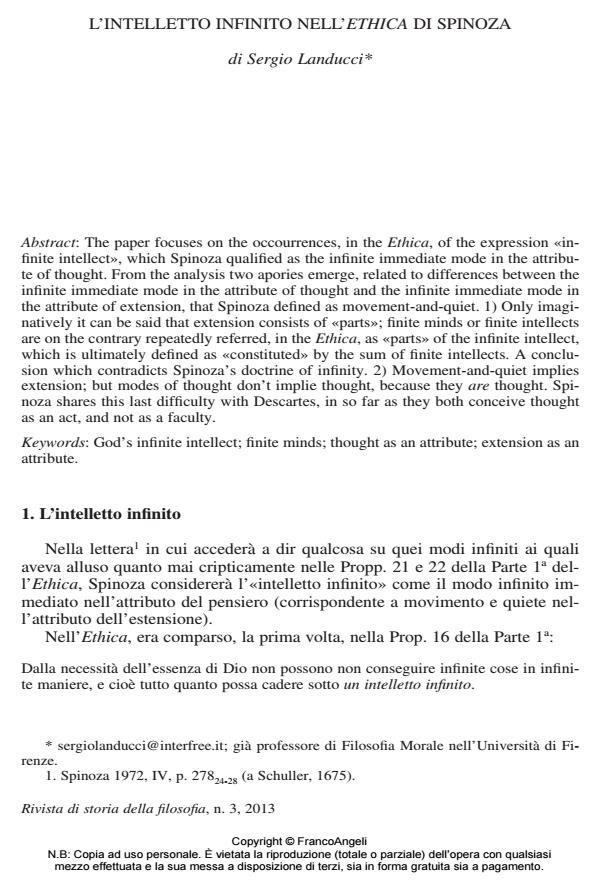L’intelletto infinito nell’Ethica di Spinoza
Journal title RIVISTA DI STORIA DELLA FILOSOFIA
Author/s Stefano Landucci
Publishing Year 2013 Issue 2013/3
Language Italian Pages 10 P. 459-468 File size 485 KB
DOI 10.3280/SF2013-003002
DOI is like a bar code for intellectual property: to have more infomation
click here
Below, you can see the article first page
If you want to buy this article in PDF format, you can do it, following the instructions to buy download credits

FrancoAngeli is member of Publishers International Linking Association, Inc (PILA), a not-for-profit association which run the CrossRef service enabling links to and from online scholarly content.
The paper focuses on the occourrences, in the Ethica, of the expression «infinite intellect», which Spinoza qualified as the infinite immediate mode in the attribute of thought. From the analysis two apories emerge, related to differences between the infinite immediate mode in the attribute of thought and the infinite immediate mode in the attribute of extension, that Spinoza defined as movement-and-quiet. 1) Only imaginatively it can be said that extension consists of «parts»; finite minds or finite intellects are on the contrary repeatedly referred, in the Ethica, as «parts» of the infinite intellect, which is ultimately defined as «constituted» by the sum of finite intellects. A conclusion which contradicts Spinoza’s doctrine of infinity. 2) Movement-and-quiet implies extension; but modes of thought don’t implie thought, because they are thought. Spinoza shares this last difficulty with Descartes, in so far as they both conceive thought as an act, and not as a faculty.
Keywords: God’s infinite intellect; finite minds; thought as an attribute; extension as an attribute.
- Ibn Gabirol (Avicebron) Roberto Gatti, pp.383 (ISBN:978-2-503-60552-4)
Stefano Landucci, L’intelletto infinito nell’Ethica di Spinoza in "RIVISTA DI STORIA DELLA FILOSOFIA" 3/2013, pp 459-468, DOI: 10.3280/SF2013-003002